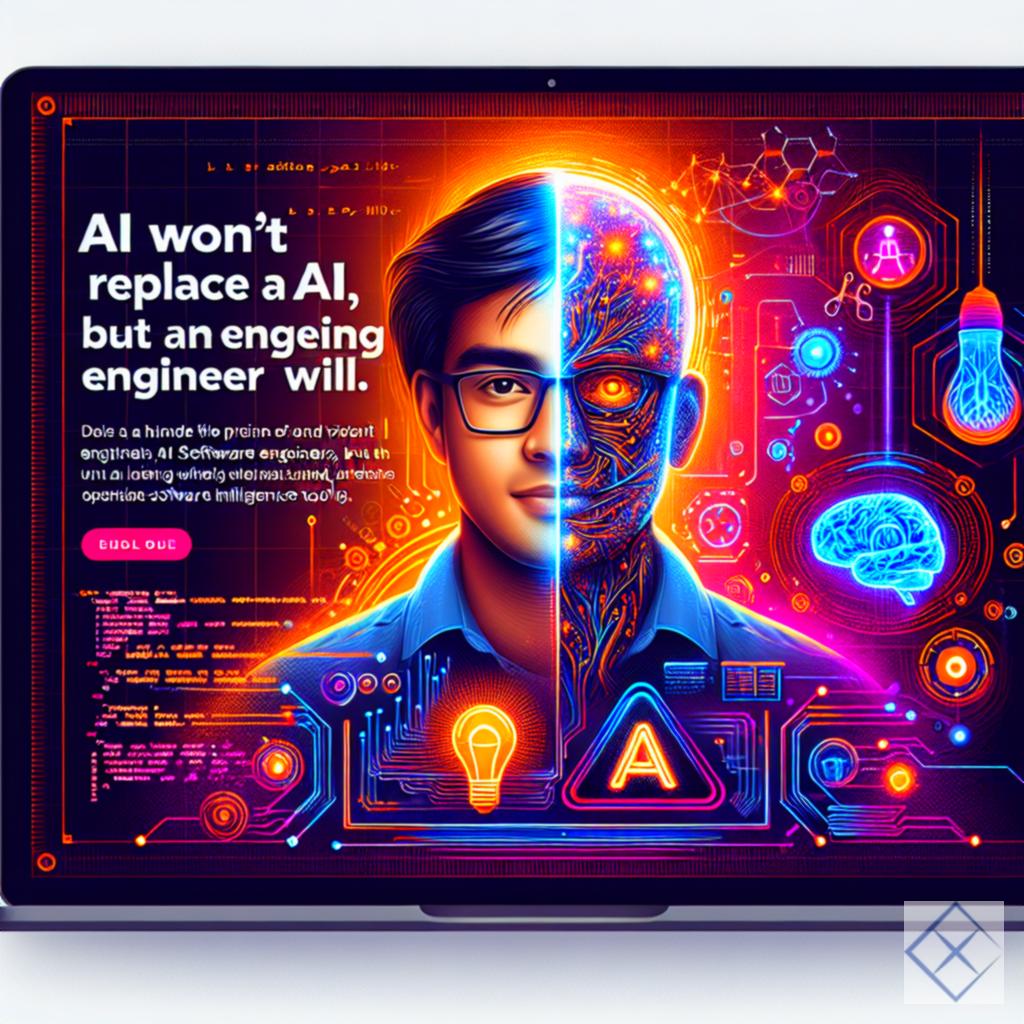"AI won't replace software engineers, but an engineer using AI will"

AI Won’t Replace Software Engineers, but an Engineer Using AI Will
In the rapidly evolving landscape of software development, the introduction of artificial intelligence (AI) tools has ignited a vibrant debate among developers and industry leaders alike. The prevailing statement—“AI won’t replace software engineers, but an engineer using AI will”—has sparked myriad interpretations and reactions. As a software engineer with several years of experience, I find this assertion both intriguing and multifaceted. Let’s delve deeper into what this means for our profession and how we can adapt to thrive in this new environment.
Understanding the Statement
At its core, the statement underscores a critical truth: the integration of AI tools into the software development workflow can significantly enhance productivity. However, it also implies that merely being a software engineer is no longer sufficient; one must also embrace and leverage AI capabilities to remain relevant.
The Role of AI in Software Development
AI tools like GitHub Copilot, ChatGPT, and Cursor offer remarkable capabilities, from generating code snippets to debugging and providing documentation assistance. As many developers have noted, these tools can act as a “robotic intern,” helping to automate mundane tasks while allowing engineers to focus on more creative and complex aspects of development.
For instance, in a recent discussion, one developer shared their experience using AI to draft complex SQL queries that would have taken them hours to write from scratch. With AI’s assistance, they were able to produce a functional query in a fraction of the time, underscoring the efficiency gains that can be achieved through these tools.
The Need for Critical Thinking
Despite the advantages AI presents, it’s essential to remember that these tools are not infallible. The output generated by AI often requires human oversight and critical thinking. For instance, one engineer pointed out that while AI might generate boilerplate code quickly, the engineer still needs to ensure that the code adheres to best practices and meets the specific requirements of the project.
Thus, the effective use of AI tools requires a robust understanding of software engineering fundamentals. Those who rely solely on AI without applying their judgment may find themselves in a precarious position, as they risk becoming less competent developers over time.
Embracing AI as a Tool, Not a Replacement
The sentiment that AI will replace software engineers is overly simplistic and fails to recognize the nuanced reality of our profession. As one commenter put it, “AI is a tool, and like any tool, its usefulness depends on how you use it.” Engineers who can effectively integrate AI into their workflows will likely be more productive, but this does not mean that AI will replace the need for human insight, creativity, and problem-solving.
Moreover, there is historical precedent for new technologies augmenting rather than eliminating jobs. Just as the introduction of IDEs and version control systems transformed the software development landscape without eradicating the need for engineers, AI is poised to enhance our capabilities rather than replace us entirely.
The Future of Software Engineering
As AI continues to evolve, it is likely that the landscape of software engineering will change significantly. Here are a few potential scenarios:
-
Increased Productivity: Engineers who adeptly use AI tools will be able to produce higher quality solutions faster. This may lead to smaller teams accomplishing more complex projects, as discussed by several developers who believe that AI can allow a single architect to oversee a significantly larger project.
-
A Shift in Hiring Practices: Companies may prioritize candidates who demonstrate proficiency in leveraging AI tools. As AI becomes integral to development processes, the ability to effectively use these tools may become a core competency, much like proficiency in specific programming languages.
-
The Importance of Human Insight: Despite the rising capabilities of AI, human engineers will still be needed to navigate the complexities of project requirements, stakeholder communication, and design decisions. The human element remains essential, especially when it comes to understanding the nuances and context of a project.
-
Emerging Roles: As AI tools become more prevalent, new roles may emerge that focus on overseeing AI-assisted development processes. For instance, a “Prompt Engineer” could specialize in crafting effective queries for AI tools, ensuring that the outputs are relevant and useful.
Conclusion
The statement “AI won’t replace software engineers, but an engineer using AI will” serves as a clarion call for developers to embrace the changing landscape of our profession. By leveraging AI tools effectively, engineers can enhance their productivity, streamline their workflows, and tackle more complex challenges. However, it is crucial to maintain critical thinking and a deep understanding of software engineering principles to ensure that we do not become overly reliant on these tools.
As we move forward, the key will be to view AI not as a threat, but as a powerful ally in our pursuit of excellence in software development. The future may be uncertain, but those who adapt and evolve will undoubtedly find a place in it.